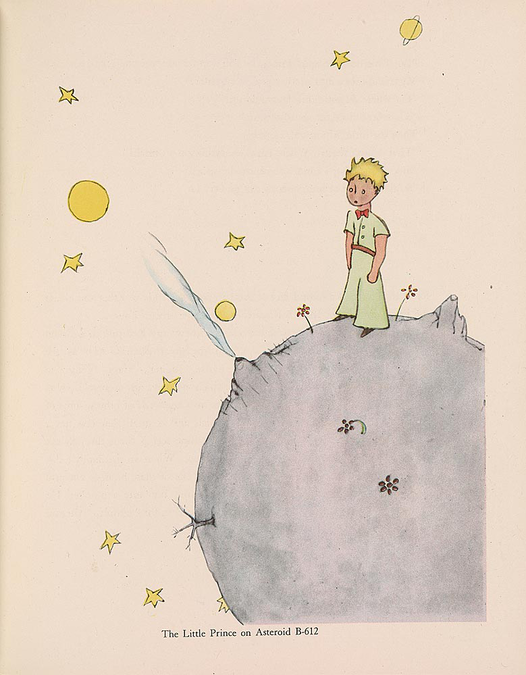|
All my life I have had this question in my mind, “what did the first human think when he made the first tool? Sorry my PC friends I am using “he” for a human, it can be a “she” or “them”; please indulge my point. Was he thinking “I am making history” or did he not care? He simply wanted to cut that meat, root, or plant, to eat? Was he looking to be great or was he looking to satisfy his need? We will never know until someone invents a usable time machine and goes back a few million years back to ask just what was going through his mind and then report it on CNN, BBC or social media. Meanwhile, we have to be content with more recent history in order to look at the topic, “are we called for greatness or are we called to be happy? This theme has been a subject of contemplation and debate through various philosophical and literary lenses.
I will be using my favorite authors to present my points; Voltaire, Nietzsche, Gibran, Antoine de Saint-Exupéry, and Richard Bach. Voltaire’s Candide satirizes the notion that we live in the “best of all possible worlds,” challenging the idea that the pursuit of greatness inevitably leads to happiness. The protagonist’s journey through a series of misfortunes ultimately leads him to appreciate the simpler aspects of life. Nietzsche’s concept of the Übermensch, or ‘Superman,’ is not, as sometimes thought, about a superior race, but rather an individual’s self-overcoming and self-discovery. It’s a call to forge one’s path and values, which can be seen as a form of achieving greatness, but it also raises questions about the cost to one’s happiness and contentment. Gibran's timeless piece of wisdom, The Prophet, articulated through the voice of Almustafa, celebrates the pursuit of happiness as an intrinsic aspect of the human experience. Almustafa's reflections on love, work, and sorrow evoke a poignant portrayal of the human condition, emphasizing the importance of finding joy and fulfillment amidst life's trials and tribulations. Antoine de Saint-Exupéry’s The Little Prince presents a critique of adult priorities and highlights the importance of relationships and the ‘invisible’ qualities of love and friendship. It suggests that true happiness may lie not in grand achievements but in understanding and valuing the intangible. Bach's timeless fable serves as a poignant reminder that happiness lies not in conformity or external validation but in the unwavering pursuit of one's dreams and aspirations. Jonathan's relentless pursuit of perfection in flight symbolizes the human quest for self-actualization and the fulfillment derived from the pursuit of passion and purpose. In my experience, either when I trained young men and women, or when I taught young minds, or when I worked in companies, I told people to ascend, go beyond, achieve greatness, listen to their higher calling. Was I right? It was just business, because when I came to my own kids, all I asked from them “is for them to be happy”. I was a hypocrite, asking young men to die for a higher cause, but my kids to just be happy. Were we raised and educated to look for greatness other than being happy? Thus, we struggle most of our lives to chase a “greater calling” a “destiny”. Religion usually calls for “greater calls”, “prepare for an afterlife”, “be enlightened”, “you are chosen”. Are we? Google the life expectancy at birth during the 19th century, and you will find that was 28.5 – 32 years. Using the same query, and according to Google again, now it is 71.33 years (obviously this will vary from country to country, but it’s an average). Thus, when holy men, all of them, were alive they might have been the senior citizens of the world, what are we supposed to be doing or the 40 years of difference between then and now Just wait? My answer is BE HAPPY. You want to follow a higher calling, good, go for it, but don’t complain you are stressed. You want to be happy, good go for it, but don’t say you are poor. Or you can just enjoy life as a series of happy moments, cherishing love, friends and the beauty in life, while you accept sadness from all what is going on around us as it is life, and while good things happen, so too do bad things. You might feel like you are on a roller coaster, but that is life. It is your life, you don’t even have to choose. From Voltaire's Candide to Nietzsche's Übermensch, from Gibran's Prophet to Saint-Exupéry's Little Prince, and from Bach's Jonathan Livingston Seagull, these literary works offer profound insights into the complexities of the human condition. Whether we strive for greatness through intellectual enlightenment and self-transcendence or seek happiness through love, friendship, and self-discovery, the essence of our humanity lies in the pursuit of these timeless aspirations. As we navigate the labyrinth of life, let us heed the wisdom of these timeless voices and embrace the dual quests for greatness and happiness with courage, compassion, and unwavering resolve.
0 Comments
Leave a Reply. |
Details
about bloomWe are a European/Lebanese run art space in Valencia, Spain. Archives
July 2024
COPYRIGHT NOTICE© Bloom Gallery. Unauthorized use and/or duplication of this material without express and written permission from this site’s author and/or owner is strictly prohibited. Small excerpts and links may be used, provided that full and clear credit is given to Bloom Gallery with appropriate and specific direction to the original content.
|
